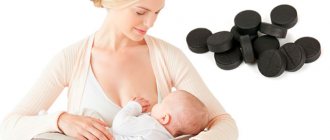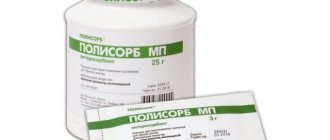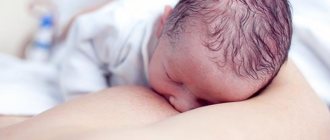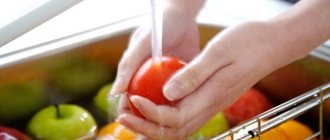Causes
Poisoning is the effect of toxic substances on the body. Everyone has encountered this phenomenon. Intoxication causes a disruption in the normal functioning of human organs and systems. There are several causes of poisoning:
- products of dubious quality;
- toxic substances;
- chemicals;
- drug poisoning.
A nursing mother usually experiences eating disorders due to the penetration of bacteria and microorganisms into her body. This happens if the mother ate something of poor quality or something that was incorrectly prepared and stored in inappropriate conditions, or its expiration date has simply expired. The main causes of poisoning include:
- poorly washed vegetables and fruits. Either picked from your garden or bought in a store;
- preserved food, during the preparation of which the established standards of preparation were violated;
- hands that were poorly washed;
- poisonous mushrooms;
- dairy products such as kefir, sour cream, milk, which have expired or were stored in unsuitable conditions;
- water of questionable quality, which was used for cooking or just for drinking.
It does not matter which of the reasons caused the intoxication. Toxins will still penetrate into the body of a nursing mother. They will cause irritation of the mucous membrane and further symptoms of the disease.
Poisoning associated with digestion can be mild or severe. For a mild form of food poisoning, a nursing mother can be treated at home. Every mother will first of all remember that most medications are prohibited while breastfeeding. But there are drugs that are not contraindicated in treatment.
It is necessary to cleanse the intestines of toxins present in it. An effective medicine would be activated carbon, Smecta, Polysorb or Enterosgel. It should be taken strictly according to the instructions, without exceeding the dosage. At elevated temperatures, take paracetamol, 2-3 tablets per day, or Nurofen, in the form of baby syrup.
If a mother is suspected of being poisoned due to poor-quality food, the mother should cleanse her stomach. To do this, make a weak solution of potassium permanganate. Take half a liter of this drink in small portions every 10–15 minutes. Then induce vomiting. This will help the leftover food leave the body. To avoid dehydration, mom needs to drink a lot of liquid: water (boiled), chamomile tea, compote, strong black tea.
If loose stools occur, be sure to remember that all medications for diarrhea during feeding are prohibited. Traditional medicine methods will come to the rescue here:
- 10–15 black peppercorns;
- rice broth;
- decoction of potato starch;
- rice porridge cooked in water.
For abdominal pain, taking painkillers during lactation is prohibited. Tea made from chamomile flowers (not saturated) can help. A prerequisite for poisoning is to follow a diet. In addition to the fact that a nursing mother already monitors her diet during this period, during illness she should eat food that will not irritate the intestines. Food needs to be boiled or baked in the oven. Eliminate hot, spicy and fatty foods from your diet.
If all independent therapeutic measures do not improve the mother’s condition, you should consult a doctor. The doctor will analyze the symptoms and prescribe, if necessary, effective treatment.
In order to avoid poisoning in the future, you should follow simple rules:
- Wash fruits and vegetables well before eating;
- Do not buy products if the packaging is torn or damaged;
- Food should be well boiled or stewed;
- Carefully monitor the date of manufacture and how long the product is good for;
- Strictly adhere to the rules of personal hygiene;
- Wash your hands before each breastfeeding;
- Keep your chest clean.
From all that has been said, it follows that poisoning is not a reason to stop feeding. The future health of her baby depends on the mother, which he will strengthen with the help of her milk. By taking all precautions, a woman will be able to feed her baby for a long time without any problems. After all, this is the best food for him. And also learn that if you have food poisoning, you can breastfeed.
Oral
Considering that the baby feeds mainly on breast milk, there are two main reasons:
- spoiled food (solar foods);
- poor-quality processing of nipples and bottles.
Infants from six months of age are recommended to introduce complementary foods. Sometimes complementary foods are introduced earlier, but pediatricians indicate precisely six months of age for a number of reasons. The start time of introducing complementary foods, its quality and quantity play an important role in the development of the digestive system.
Infectious
Infectious food poisoning in children of this age can occur if the mother does not properly care for her breasts. Before feeding, you should wash your hands well and rinse your breasts with boiled water. The first few drops of milk need to be expressed, as they may contain pathogenic microbes. If a child eats complementary foods, meat and fish from which homemade purees are prepared must undergo careful temperature treatment.
- Botulism is a dangerous toxin that affects the nervous system. The causative agent of botulism is found in canned products, both factory-made and home-made.
- Salmonellosis causes severe dehydration in a short time. The main “dangerous” products are chickens and their eggs, duck. Turkeys and quail do not suffer from salmonellosis.
- Dysentery (shigellosis) affects the intestines, causing profuse vomiting and diarrhea, which also leads to dehydration. It occurs due to insufficient hygiene and neglect of sanitary rules (washing hands, rinsing breasts before feeding, sterilizing pacifiers).
Inhalation
The use of chemicals in an apartment with a small child should be kept to a minimum. Poisoning from gasoline, acetone vapors, and concentrated alkalis and acids is dangerous. When washing and sterilizing nipples and bottles, do not use chemicals, preferably soda, distilled or boiled water.
Another very real situation is the use of gasoline by an infant. There are many options for events that led to gasoline getting into the child’s mouth and stomach. Poisoning a child with gasoline entails serious complications, including coma and death. It is important to act immediately, but not on your own, since pre-medical care in this case is limited.
Poisoning with hepatitis B can occur due to infection with pathogenic bacteria or from eating poor-quality foods.
Foodborne illness develops due to the action of toxins that enter the intestines from low-quality foods. In addition to toxic substances, pathogenic bacteria and their metabolic products can accumulate in products. The cause of poisoning most often are dairy products, meat and sausage products, fruits and vegetables.
Intestinal infections occur due to infection with opportunistic and pathogenic microorganisms: Staphylococcus aureus, Escherichia, Salmonella, Escherichia coli or Shigella, which provoke the development of dysentery. You can become infected with intestinal infections by drinking unboiled water, poorly washed fruits, and through household contact.
When breastfeeding, such poisoning is not uncommon. During this period, the woman’s body is greatly weakened - pregnancy and childbirth caused a decrease in immunity, and lack of sleep and rest led to a general deterioration in health. Because of this, poisoning can occur even with a slight deterioration in the quality of products or the ingestion of conditionally pathogenic microorganisms, such as staphylococcus or E. coli. Poisoning during pregnancy develops according to the same principle, but they carry out completely different treatment and give other recommendations.
To figure out whether it is possible to breastfeed a child during poisoning, it is necessary to determine the cause. The most common culprits are the following bacteria:
- Salmonella. Salmonella is found in raw foods, eggs in particular pose a potentially high risk.
- Campylobacter. The bacterium is found in improperly cooked meat and raw eggs.
- Shigella. It is found in warm regions with poor sanitary and hygienic standards. Breastfeeding mothers living in countries such as Tunisia, India, Turkey and Egypt are at risk. Water must be boiled, even if it is only used to brush your teeth.
- Yersinia. Transmission of the bacterium occurs primarily through contact with infected animals or through consumption of contaminated animal products. Signs of poisoning can be observed for 2 weeks.
Treatment for poisoning of a nursing mother
Doctors try not to prescribe medications to breastfeeding women, so as not to harm the baby.
First you need to rinse your stomach. To do this, a woman should drink 1-1.5 liters of water, and then artificially induce vomiting. Repeat until clean water without impurities begins to come out.
After this, you should take the sorbent. Polysorb, activated carbon, Smecta are suitable. The dosage is calculated according to the instructions on the package; adjustments may be required on the recommendation of a doctor.
READ Dairy product poisoning
Following a special diet is also important for detoxification. For the first few hours, you can only drink boiled water. You will need a lot of fluid, since a large amount is excreted through vomit and feces, which can lead to dehydration. Then they are allowed to drink strong sweet tea. The next day, boiled porridge (rice, oatmeal, buckwheat) and broth (vegetable or chicken) are introduced into the diet. Then the diet is allowed to be expanded by adding heat-treated vegetables.
You may need to cleanse your colon with an enema. Clean water or oil will be introduced through the rectum to stimulate bowel movements. Remnants of toxins will be released from the body with feces.
Traditional methods can only be used with the permission of a doctor.
Selecting them yourself is dangerous: not all methods are useful, some can negatively affect the health of the mother and baby. In addition, dosage adjustments are often required.
Many mothers are interested in whether it is possible to feed breast milk if poisoned. During therapy, it is recommended to follow the doctor's instructions.
How to recognize poisoning during lactation
Vomiting in the mother is the most common sign of any poisoning. It can occur after eating poorly washed vegetables, eating meat or fish dishes that have not undergone complete heat treatment. Diarrhea can be caused by contaminated water or dirty hands.
In severe cases, vomiting and diarrhea may be accompanied by fever. Symptoms (diarrhea, vomiting) appear within 2 days after eating low-quality products. Breastfeeding should be stopped and medical help sought if intoxication is caused by taking medications or contact with chemicals.
Causes of stomach disorders
Intoxication often occurs after eating poorly washed or low-quality products. In rare cases, a nursing mother's body may react negatively to household chemicals or medications. Poisoning most often occurs for the following reasons:
- Eating poorly washed vegetables and fruits, products that have expired or were stored in unsuitable conditions.
- Consumption of meat and eggs that have not undergone proper heat treatment, canned food, the preparation of which was violated the technology.
- Dirty hands.
- Drinking contaminated water.
- Eating poisonous berries and mushrooms.
Read also Causes of vomiting and fever in a child without diarrhea
Symptoms of poisoning with gw
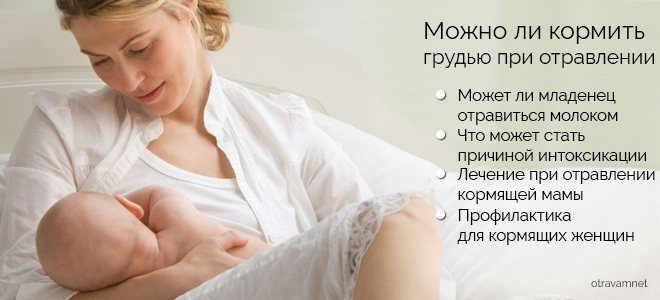
Food poisoning with hepatitis B manifests itself in different ways. Depending on the causes of poisoning and the severity of the disorder.
Poisoning can be suspected if the following signs appear:
- Unpleasant sensations arise after 2-6 hours from eating. The time of onset of symptoms depends on the amount and type of food eaten and the time of year - in warm weather, symptoms of poisoning occur much faster, as pathogenic microorganisms multiply more actively.
- Abdominal pain is the main symptom of the pathology. The pain, as a rule, is not pronounced, is localized in the lower abdomen, in the intestines, and may be accompanied by rumbling and gas formation.
- The urge to defecate and loose stools - increased frequency of stools up to 4-10 times a day is typical for poisoning caused by infectious agents. The stool may be liquid, with mucus and undigested food debris.
- Nausea and vomiting.
- Increase in body temperature - up to 37-38 C degrees C.
- Weakness, general malaise.
In case of infectious poisoning:
- dyspeptic disorders of varying intensity (vomiting, diarrhea);
- flu-like symptoms (headache, muscle aches). An infant is unlikely to complain about this, but external manifestations are easy to notice;
- fever (high temperature) and chills.
In case of poisoning by gasoline vapors (or other chemicals):
- excessive activity or drowsiness;
- facial redness;
- increased heart rate;
- frequent shallow breathing;
- vomit;
- convulsions;
- loss of consciousness.
Moderate poisoning causes: a sharp rise in temperature, profuse vomiting, persistent upset of stool and digestion. The child refuses to eat and drink, whines, and cries. Chills, fever, and bluishness of the skin may be detected (more often with inhalation poisoning, since the lungs are affected). Blood pressure may drop and loss of consciousness may occur.
Signs of poisoning in a nursing mother
Toxins, depending on their type, can affect different organs and systems, therefore, the clinical picture of poisoning may look different.
As a rule, by poisoning we mean a painful condition caused by the consumption of stale or low-quality products, that is, food poisoning. In this case, the threat to health comes, firstly, from pathogenic microorganisms that enter the body through the mouth, and secondly, from toxins released during the life of these infectious agents.
The main signs of food poisoning are:
- nausea and vomiting (these signs indicate that the pathogen is in the esophagus, stomach or duodenum);
- diarrhea, possibly with mucus (means that the infection has already reached the intestines);
- acute pain in the abdomen (most often in the navel area);
- fever;
- cold extremities;
- pale skin (a sure sign that the poisoning is bacterial in nature);
- cold sweat;
- complete lack of appetite;
- severe weakness, drowsiness.
All of these symptoms, individually or in combination, are a classic picture of poisoning. They begin to appear a few hours after the pathogen enters the body, and, as a rule, disappear after a few days. If this does not happen or, after improvement, deterioration occurs again, the young mother should immediately seek medical help.
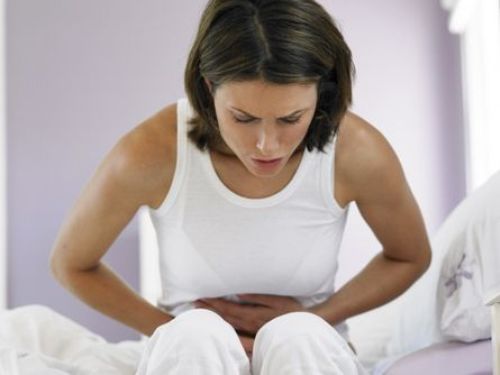
Abdominal pain is a characteristic sign of poisoning
The reason to call a doctor immediately is the presence, in addition to the usual signs of poisoning, of at least one of the following symptoms:
- inability to drink due to severe vomiting;
- speech dysfunction;
- difficulty swallowing;
- vision problems;
- skin rashes;
- absent urination or change in urine color;
- swollen joints;
- yellow skin or mucous membranes;
- blood in stool or vomit.
Table: signs of poisoning from various organs and systems
| Locus of the lesion | Possible symptoms of poisoning |
| Nervous system |
|
| The cardiovascular system |
|
| Respiratory system |
|
| Gastrointestinal tract |
|
Is it possible to breastfeed a child? First aid and treatment
To preserve guardianship if the mother is poisoned, you need to start treatment at the first signs of the disease:
- Clear the stomach of food debris - to do this, you can drink salt water (500 ml -1 l) until vomiting occurs. You can also stimulate gagging by pressing on the root of the tongue with a spoon.
- Take adsorbents - they prevent the absorption of toxins in the intestines and promote their faster elimination. If poisoning in a nursing mother is not severe, adsorbents such as activated carbon, polysobr, enterosgel, and so on are excellent.
- To avoid dehydration and prevent loss of salts through vomiting and loose stools, it is recommended to drink rehydron solution, glucose solution, tagan sorbent, or at least sweet tea or compote.
What can a nursing mother do in case of drug poisoning? Unfortunately, besides the above, there is practically nothing. Antibacterial drugs, antispasmodics, antiemetics and antidiarrheals can pass into breast milk and reach the baby, so their use is prohibited.
Is it possible to breastfeed if poisoned? Only a doctor can answer this question in each specific case.
What can a nursing mother do?
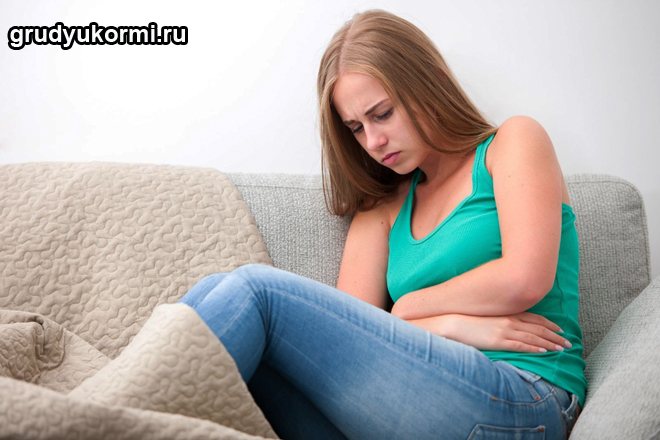
If it was decided to treat poisoning during breastfeeding at home, you also need to think about the diet of the nursing mother. Food should be easily digestible, healthy and nutritious.
To maintain lactation and not burden the intestines, it is recommended:
- Avoid raw vegetables and fruits.
- Give preference to light, lean dishes - soups with vegetable broth, porridge with water, boiled vegetables and steamed meat.
- Eliminate all fried, fatty, sweet, canned foods.
- Drink more fluid - at least 2 liters per day.
- Stop consuming dairy products.
Treatment should be carried out by specialists. Self-treatment is unacceptable. Any signs of poisoning in a baby require immediate contact with an ambulance or a local pediatrician. In infants, poisoning is treated in a hospital setting; rehabilitation is complex and multi-stage.
First aid
First aid is aimed at stopping the effects of poison on the body. In the case of gasoline fumes or other vapors, provide access to fresh air: take the baby outside or bring it to an open window.
If poisoning occurs due to food, then gastric lavage is used, which is best left to health workers. At home, you need to give as much water as possible to drink; with specific pathogens, vomiting will not take long to occur. Do not provoke vomiting yourself, do not use solutions of potassium permanganate. Lay the child on his side and wait for the ambulance to arrive (or for the doctor to arrive). Vomit should not enter the respiratory tract, otherwise breathing will stop.
If you smell gasoline from your breath or vomit:
- Call an ambulance;
- lay the child on his side;
- Give a little Vaseline oil, ordinary vegetable oil will do: sunflower, olive or mustard.
Drugs
For dehydration, special solutions are used. They can be prescribed in drinking form or in the form of droppers. Saline and glucose are administered intravenously, and Oralit or Regidron is prescribed in drinking form. For any poisoning, you need to drink plenty of fluids: fruit drinks, juices, weak tea with sugar. Sorbents are used (like activated carbon). They are given to children in crushed form. Those poisoned by chemical vapors (gasoline, acetone, etc.) are given oxygen therapy.
Breastfeeding during poisoning is not prohibited. However, first of all, it is necessary to find out what poisoned the woman. After which the question of the possibility of breastfeeding is decided. For mild illness, when hospitalization and the use of strong medications are not required, feeding the child is not contraindicated.
Mother's milk contains antitoxin antibodies that provide reliable protection for the baby. Bacteria will not penetrate the baby’s body, but a nursing woman must observe personal hygiene rules before feeding.
If food poisoning occurs due to the penetration of copper, arsenic, lead, poisonous mushrooms, cadmium, you should temporarily stop giving your baby your milk until toxic substances are completely eliminated. Also, if a woman is severely poisoned during lactation and requires hospitalization with antibiotics and other heavy medications, breastfeeding is contraindicated.
What to do in such a situation? The main thing is to provide first aid in a timely manner, which consists of the following:
- gastric lavage with potassium permanganate or plain water;
- adoption of sorbent (Activated carbon, White carbon, Polysorb, Enterosgel, Smecta);
- cleansing the intestines with an enema to prevent toxic substances from entering the circulatory system.
Usually minor poisoning is treated symptomatically. A woman needs to drink plenty of clean fluids to restore electrolyte balance. Water consumption per day should be 40 ml per 1 kg of weight.
The presence of diarrhea does not mean a complete abolition of food. Otherwise, the digestive system will not receive the nutrients necessary to restore the normal functioning of the gastrointestinal tract. But in the first day you will need to fast.
You should avoid eating raw vegetables, dairy products, soft drinks, and strong coffee, as they can cause flatulence. If symptoms of poisoning do not disappear on their own within a few days, consult a doctor. The doctor will use medications to quickly eliminate intoxication and replenish lost fluid.
For vomiting and diarrhea, the use of antiemetics and opiates is not recommended. Toxins will quickly be eliminated with lost fluid. In severe cases of food poisoning caused by bacteria, the nursing mother is treated with antibacterial medications. But before prescribing drugs, the type of pathogen is determined.
In the following cases, food poisoning is treated with antibiotics:
- more than 10 urges to go to the toilet within 24 hours;
- bloody stool;
- heat;
- weakened immune system;
- infection with bacteria Salmonella, Campylobacter, Shigella, Listeria, etc.
Reduce the temperature with Paracetamol or Ibuprofen. These medications should not be taken during breastfeeding.
During the period of treatment, a nursing woman should have separate dishes, soap and a towel. This is because some bacteria are transmitted through hygiene items and cutlery touched by other people in the household.
To cope with the consequences of poisoning, a nursing woman needs the help of loved ones. To restore her health and strength, she needs certain conditions and the support of loved ones.
Drinking regime
A woman should drink about 2 liters of liquid per day. This is a necessary measure. It allows you to restore the water-salt balance of the body. Drinks that help best:
- still mineral water;
- weak infusion of medicinal plants (chamomile, calendula).
For women feeding a baby with breast milk, the first day the entire diet consists of liquid, any food is prohibited. You can drink rice water. It brings stool back to normal and eliminates intestinal inflammation. On all subsequent days, mothers are advised to eat:
- any porridge cooked in water;
- meat and chicken broths (low-fat);
- boiled (steamed, in water) vegetables.
Include steamed fish and meat in the menu after 4 days, fermented milk products - a week after recovery.
The doctor's consultation
Urgent consultation with a doctor is required if there are signs of severe poisoning. High body temperature is the main sign of severe intoxication. The help of a specialist is necessary for severe vomiting and uncontrollable diarrhea in a woman. In the following cases, she also needs urgent medical attention:
- with hallucinations;
- clouded consciousness;
- visual and speech impairments.
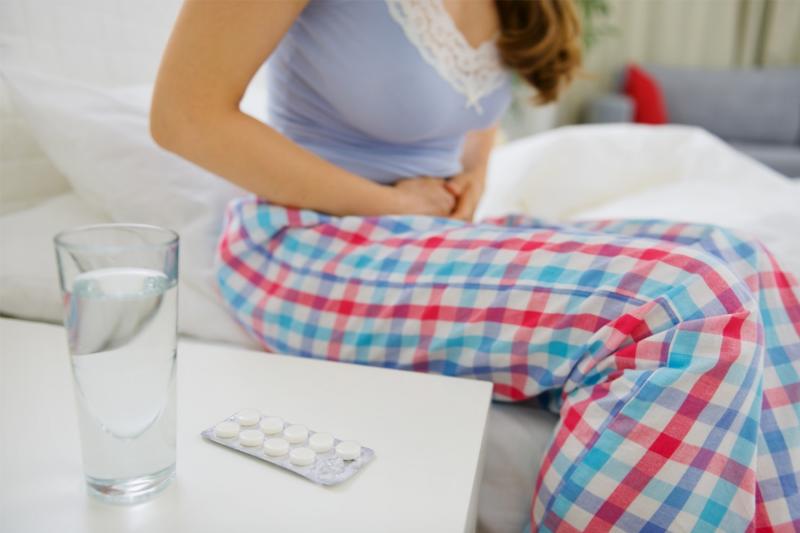
During the recovery period, the woman is prescribed bed rest.
Prevention of intoxication during hepatitis B
There is no clear answer to the question: is it possible to breastfeed if you have food poisoning? It all depends on the severity of the disorder, the pathogen that caused the disease and the general well-being of the woman.
According to pediatricians, food poisoning during breastfeeding in a mother, subject to personal hygiene rules, will not affect the child’s condition, since toxins and pathogenic bacteria from the intestines will not enter breast milk. The risk of infection of a child during breastfeeding increases, but not much, since to eliminate it it is necessary to completely eliminate contact between the baby and the mother.
Breastfeeding during poisoning is allowed if:
- The woman feels well.
- Pain, nausea and vomiting are not expressed.
- Body temperature is subfebrile and febrile - no higher than 38-38.5C degrees.
- A woman does not lose a lot of fluid and nutrients with vomit and loose stools, and can also replenish them - she does not feel sick from water and food and she can, while adhering to a diet, receive adequate nutrition and drink at least 2-2.5 liters of fluid per day. day.
You cannot breastfeed a child who has been poisoned if:
- The patient experiences severe weakness and cannot get out of bed.
- Body temperature is above 39-40 C degrees.
- Symptoms of poisoning persist for more than 2-3 days.
- The bowel movements become more frequent more than 8-10 times a day.
- The woman has uncontrollable vomiting and nausea.
- For acute, severe abdominal pain.
Infectious disease specialists also insist that the answer to the question: is it possible to feed during poisoning should be negative if a woman is suspected of developing salmonellosis, dysentery or botulism.
As a result of poisoning with poor-quality food, a nursing woman accumulates toxins in her body - waste products of harmful bacteria. Their rapid removal (detoxification) is the main goal of therapy.
You can rinse the stomach with filtered water, salt solutions, and manganese. The washing procedure is unpleasant. First, the woman drinks 1 liter or ½ liter of water (solution). She then induces vomiting. To provoke her, she presses her finger on the root of her tongue.
The woman cleans her stomach until she vomits clean water. The vomit will not contain digested or whole pieces of food or bile. Repeated washing is carried out after 2-3 hours, not earlier.
In the absence of diarrhea, the woman cleanses the intestines with an enema. This additional measure increases the effectiveness of detoxification therapy. The patient uses boiled water. The temperature of the liquid is 37 °C, its volume is 1.5-2 liters.
Activated carbon tablets are a sorbent. They are safe. Every family has coal in their medicine cabinet. The rate of tablets is determined by the formula - body weight (kg)/10. For example, if a woman weighs 70 kg, then she needs to take 7 tablets. The loading dose is maintained for 3 days after poisoning.
In acute forms of intoxication, the doctor may prescribe other sorbents:
- "Enterosgel";
- "Polysorb".
Sorbents do not penetrate into a woman’s blood and are not metabolized, so they cannot harm the newborn’s body.
Due to diarrhea and vomiting, the water balance in the body of a nursing woman is disrupted. To normalize it, she must drink at least 1.5-2 liters of liquid. Take it in small doses so as not to induce vomiting. Drinks that restore water balance well:
- warm strong tea with sugar;
- mineral still water.
During lactation, doctors recommend restoring the electrolytic balance with Orsol, 5% glucose, and Regidron.
Preventive measures
In the first day after poisoning, a nursing woman should limit herself in food. Until the intestines are completely restored, follow a gentle diet. During this period, it is necessary to remove from the diet:
- foods with a high percentage of fiber;
- all types of smoked meats;
- pickled vegetables, fruits;
- heavy, fatty dishes.
Emergency measures
With a mild form of intoxication, a woman does not need to interrupt lactation. Moderate and high degrees of poisoning require medical attention. The doctor may prescribe antibiotics and a drip to cleanse the blood.
In case of severe intoxication, a woman may be hospitalized. While in the hospital, she must express milk to maintain lactation. It does not pass it on to the child. Breastfeeding continues after leaving the hospital.
It is possible to avoid poisoning during hepatitis B. It is necessary to properly store food and adhere to personal hygiene rules. When preparing food, use utensils washed with disinfectants. A woman should have several cutting boards (for fish, meat, bread, vegetables).
Frozen foods thaw naturally. When purchasing and storing, check the expiration date of products. Store them in the refrigerator in packaging (container, bag). Wash eggs before cooking, soak vegetables for 15 minutes in water with apple cider vinegar (3 tbsp. l/l) before eating. Wash in running water.
According to WHO experts, breastfeeding women who are poisoned should not wean their baby from the breast. The newborn develops immunity to bacteria that cause intoxication.
Some women, having felt poisoning, which is expressed in nausea, vomiting and diarrhea of varying severity, headache and a slight increase in temperature, immediately stop breastfeeding, believing that they will thereby be able to protect their child from such symptoms. Due to their ignorance, mothers only cause harm to the child.
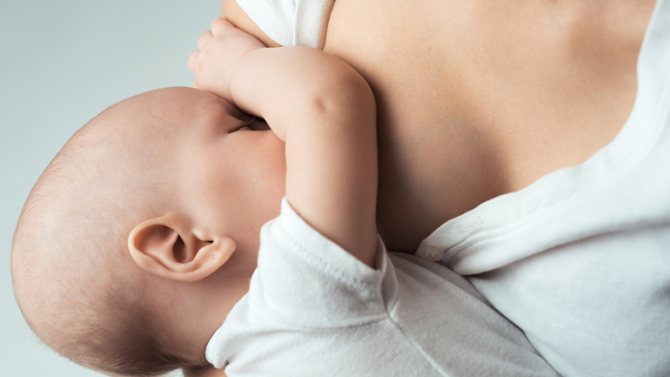
After all, breast milk is the main factor contributing to the full development of the child. It also serves as a powerful foundation for the baby’s strong immunity in later life. And as you know, having good immunity, he will get sick less often. By depriving him of such a valuable product as milk, a woman, accordingly, deprives him of such an opportunity.
It is necessary to consider the nuances in detail in order to give an accurate answer to the question - is it possible to breastfeed if poisoned. In case of poisoning, only the gastrointestinal tract is affected. Harmful and toxic organisms do not have the opportunity to enter breast milk during breastfeeding. In case of illness, the mother’s body will produce a large number of antibodies, which will be passed on to the child. This phenomenon will have a similar effect as vaccination. That is, it will develop immunity to one or another pathogen.
Mom does not need to panic about the fact that the child will eat formula. If her health allows her to express herself while she is in the infection department, her mother can do so calmly. Don't forget to drink more fluids. She will not be allowed to transfer expressed milk to the child, but she will be able to maintain lactation, which is much more important.
Firstly, this will not interfere with the formation of the baby’s immune system. Secondly, if breastfeeding suddenly stops, the mother may experience stagnation of milk - mastopathy. It will not be possible to avoid high fever and severe pain in the mammary glands, which will greatly complicate the general condition of a woman’s body, already undermined by food poisoning.
The main cause of this disease may be E. coli, which gets on unwashed fruits, meat, and vegetables. It is better to remember what was eaten during the day and try to determine what exactly caused the poisoning. If you start to feel: • nausea; • fatigue; • dizziness; • bowel dysfunction appears, then you can safely diagnose yourself with poisoning.
Is it possible to feed breast milk if poisoned?
There is no clear answer to the question of whether it is possible to breastfeed during intoxication. The problem is that depriving a baby of mother's milk means harming his health. On the other hand, it is very important to decide whether milk containing toxins will pose a danger to him?
In medicine, this issue is approached individually, taking into account the nature and severity of the woman’s poisoning. In general, the generally accepted tactics are:
- In case of mild food poisoning, breastfeeding is not stopped, but only the intervals between them are increased;
- In case of moderate and severe intoxication, the child is weaned while the mother recovers.
Breast milk has natural protective properties, it can neutralize toxins if they are not so dangerous and if there are not too many of them.
Weighing all the pros and cons, it is generally not recommended to stop breastfeeding in case of poisoning.
In another situation, when a woman is severely intoxicated, and these toxins, entering breast milk, can harm the baby’s health, and the woman herself can become a source of infection, feeding is stopped, the baby is isolated and temporarily transferred to artificial nutrition.
Usually in such cases, the woman is hospitalized and prescribed antibiotics and other drugs, which also pass into breast milk and can pose a danger to the baby.
To resume feeding after recovery, you need to regularly express milk, and after 2-3 days after taking antibacterial drugs, you can continue to feed the baby. To prevent milk loss during the treatment period, in addition to pumping, you need to drink a large amount of liquid.
Breastfeeding is temporarily prohibited in the following cases, regardless of the severity of the mother’s poisoning:
- For botulism (botulinum toxin poisoning);
- In case of poisoning with chemicals (salts of heavy metals, medications);
- In case of carbon monoxide (carbon monoxide) intoxication;
- If the mother uses broad-spectrum antibiotics and sulfonamides.
In any case, the question of the possibility of feeding a baby in a particular situation is decided by the doctor, taking into account the condition of the mother and the treatment she receives.
Prevention of intoxication during hepatitis B
A nursing mother should eat high-quality foods, then both her and the baby will be fine. Maintaining feeding hygiene is important - the baby may feel unwell due to microbes accumulating on the nipple halos or in the “top” drops of mother’s milk.
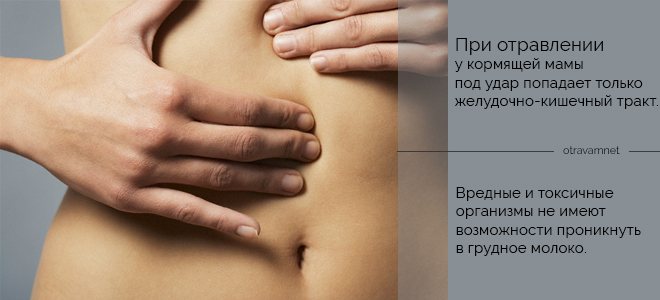
If the mother is poisoned by specific pathogens (botulism, salmonellosis, shigellosis), you need to consult a doctor about preventing poisoning in the child. Your doctor may recommend expressing milk, sterilizing it, and bottle feeding.
▼We RECOMMEND YOU TO STUDY▼
Approved medicinal products
Women during breastfeeding, in addition to enterosorbents (activated carbon, Enterosgel, Polysorb), can be prescribed antimicrobial drugs, rehydration agents, and probiotics.
| Name | Group | Daily regimen for breastfeeding | Course duration in days |
| "Bifiform" | Probiotic | Capsules 1-2 pcs. | 14-21 |
| "Linex" | 2 capsules 3 times | 7-14 | |
| "Immodium" | To inhibit peristalsis | Single dose 4 mg, with subsequent doses 2 mg after each bowel movement | 5 |
| "Enterol" 250 | From 1 to 2 sachets 2 times | 5-10 | |
| "Enterofuril" | Antimicrobial drugs | As prescribed by a doctor | |
| "Ofloxacin" | |||
| "Fthalazol" |
Antimicrobial agents are conditionally compatible with hepatitis B. Drugs that inhibit peristalsis are incompatible with breastfeeding.
